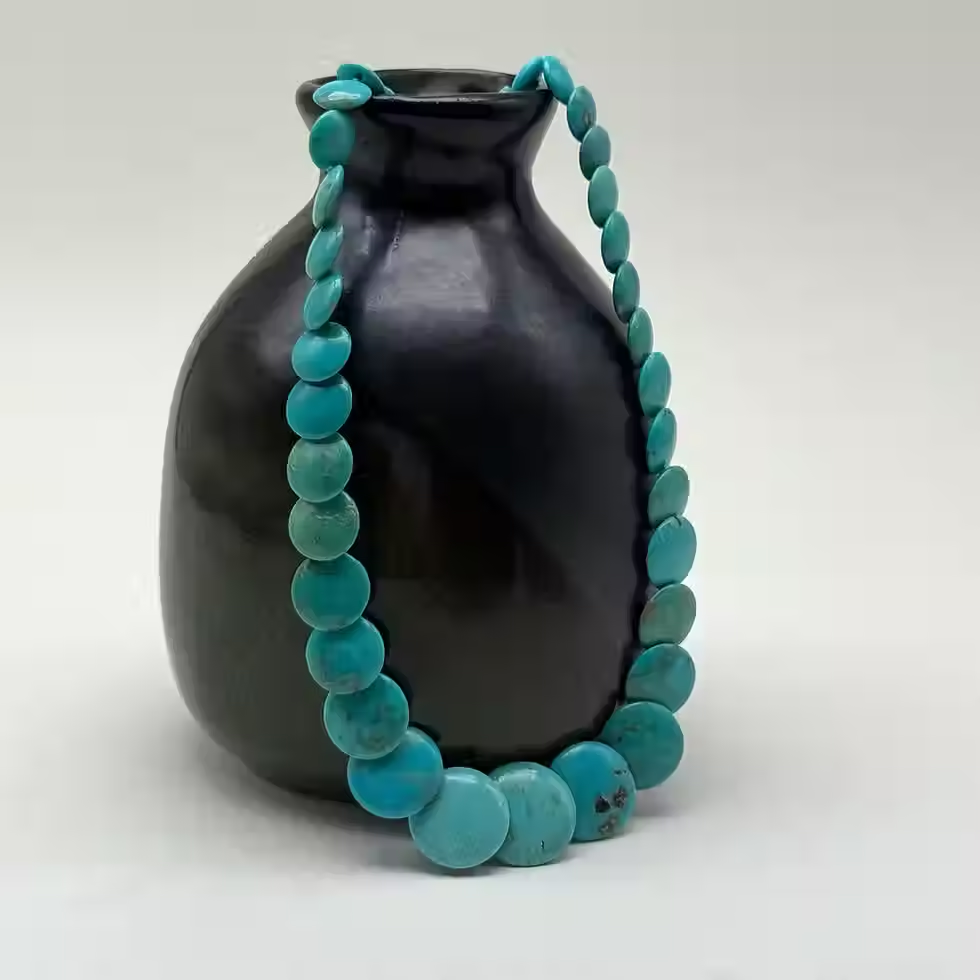The History and Meaning of Turquoise Jewellery
- David John
- Aug 22, 2025
- 3 min read
Updated: Oct 24, 2025

There are stones that echo with silence —
and there are stones that hum with the voice of the earth itself.
Turquoise has always been the latter: ancient, grounding, protective.
Before written history, turquoise was revered.
Pharaohs, shamans, warriors, and travelers carried it close — not just as adornment, but as a living shield.
It was a stone of sky and soil, of storm and shelter, bridging heaven and earth.
Turquoise does not sparkle.
It steadies.
It reminds us that beauty can be bold without being brittle — that some treasures are not found but remembered.
Where Turquoise is Found
Turquoise is mined in Iran, the American Southwest, Egypt, China, and Tibet.
Each region gives birth to subtly different hues — from the deep robin’s egg blue of Persia to the greenish, earthier tones of ancient Tibet.
It forms where water percolates through mineral-rich rock, carving veins of sky beneath the ground.
It is a stone born not of sudden eruption, but of patient transformation.
The Sky Beneath Your Feet
Among Native American tribes, turquoise was believed to be a piece of the sky fallen to earth, hidden in the soil for those brave enough to find it.
To wear turquoise was to walk always between two worlds: protected by the strength of the earth, guided by the open vastness of the sky.
It was not simply a stone.
It was a path.
The Heartbeat of Turquoise
Turquoise feels solid, confident in the hand — a little warmer than other stones, as if it remembers the sun.
Its matte surface carries the memory of open spaces — of cliffs, deserts, and endless skies no city has yet swallowed.
It is a stone that feels like place, like belonging.
What Turquoise Invites You to Remember
Turquoise calls you back to the earth.
It reminds you that protection does not have to be armor — sometimes it is simply knowing who you are, and where you stand.
It invites you to move through the world open-hearted, with strength that bends but does not break.
The Shadow Side of Turquoise
Turquoise lends strength, but strength without humility can become rigidity.
It teaches that true grounding does not resist life’s winds — it moves with them, rooted but free.
The Legacy of Turquoise
In ancient Egypt, turquoise adorned the burial mask of King Tutankhamun.
In Persia, it was set into thrones and sword hilts as a protector of kings.
Among the Navajo, Zuni, and Pueblo peoples, turquoise was carved into amulets, mosaics, and sacred jewelry — carried for protection, prosperity, and spiritual balance.
Across the world, turquoise was never a mere decoration.
It was a living companion for the soul.
Why Turquoise Jewellery Still Matters Today
Turquoise endures because the needs it answered centuries ago have not changed.
We still seek grounding.
We still seek open skies.
We still seek beauty that strengthens rather than weakens us.
When you wear turquoise jewellery, you carry not just a stone, but a lineage of protection, freedom, and fierce belonging — wherever you walk.
Thank you for spending time with the stories behind what we create — where meaning and memory live quietly in silver and stone.
Lali shapes small pieces of the sky — crafting companions for those who move between worlds.
Carry the Sky Against Your Skin —
Want to explore the emotional journey of this stone?
Read The Journey into Renewal, where Citrine, Peridot, Aqua Calci, Carnelian, and Turquoise show how hope returns — step by step, stone by stone.
Read The Journey Into Desire, where Carnelian, Garnet, Opal, Tanzanite, and Turquoise awaken the courage to feel, to speak, and to become — flame by flame, truth by truth.




Comments